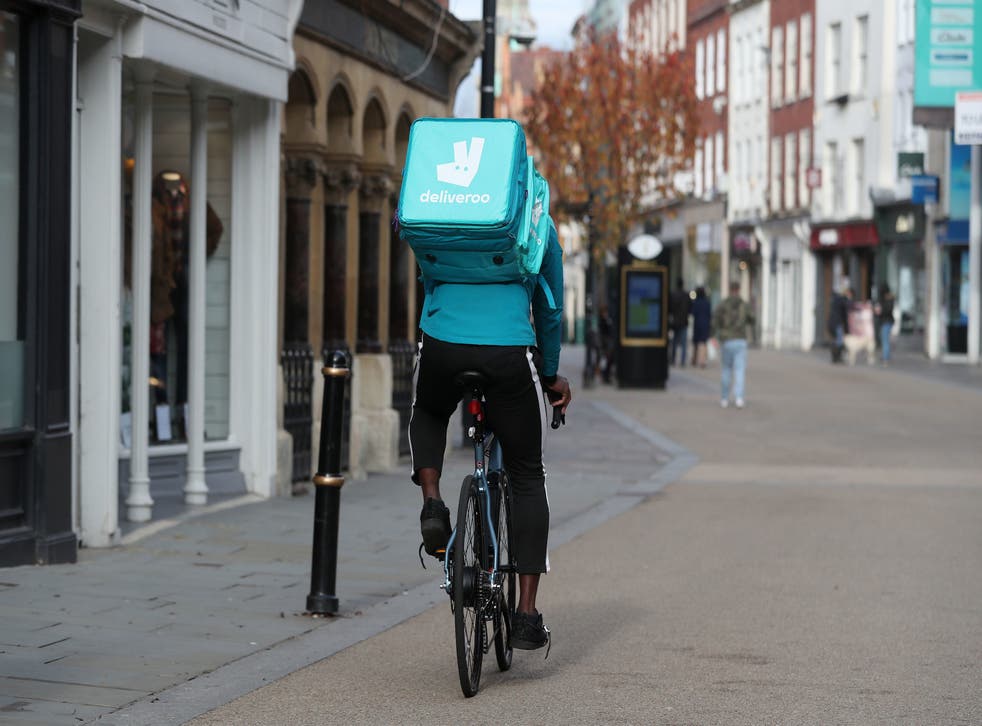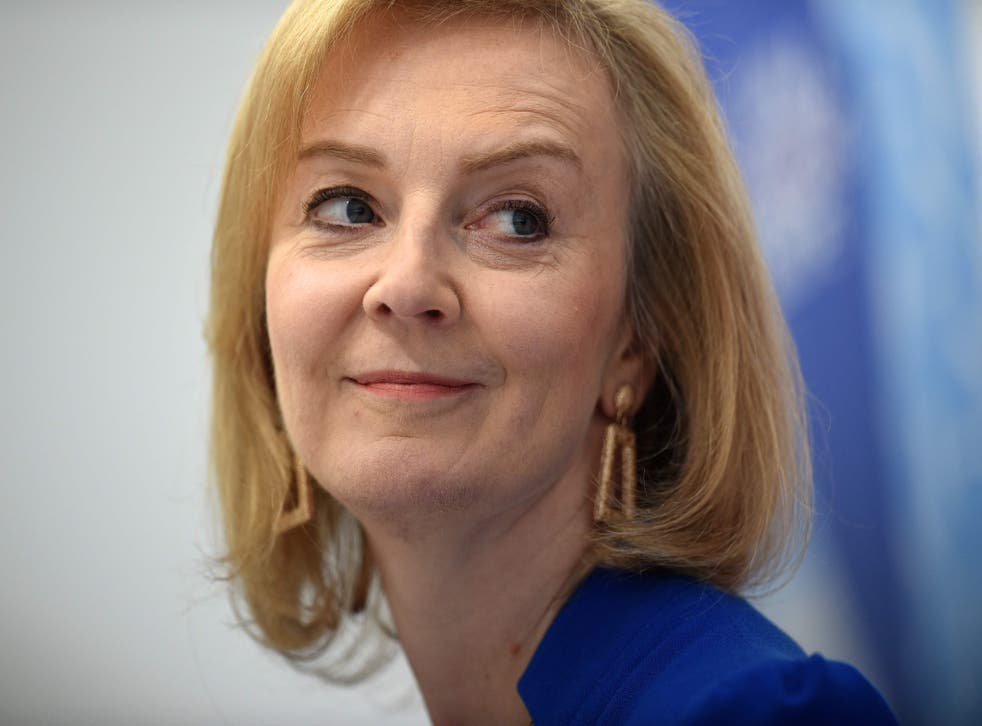Public supports nationalising ‘gig economy’ apps such as Deliveroo and Uber to improve working conditions
Oxford University study finds strong support for action on gig economy
Jon Stone
Policy Correspondent

Deliveroo riders are classed as self-employed
(PA)
There is strong public support for taking “platform” apps such as Deliveroo and Uber into public ownership if they fail to improve pay and conditions for their workers, new polling has found.
A study of opinion commissioned by researchers at Oxford University found a ratio of nearly two-to-one (41 per cent to 22 per cent) believe so-called gig economy workers are not paid a fair wage.
The researchers from the university’s Fairwork project had pollsters ask voters about measures they would support to improve conditions in the sector.
They found nearly two-thirds of Britons (64 per cent) support changing employment law to stop platform employers from inaccurately describing workers as “self-employed” to get around requirements like holiday pay and sick leave.
And a significant majority (57 per cent) think the companies should be obliged to negotiate with trade unions – which very few of them currently recognise. Sixty per cent also say the companies should have to accept worker representatives sitting on their boards of directors.
But there was also strong support for going further: asked whether the companies behind the apps should be nationalised and taken into public ownership if they repeatedly failed to offer workers fair pay and conditions, 49 per cent agreed and 25 per cent disagreed.
A large majority of 60 per cent of Labour voters support the idea, but it is also popular among Conservative voters, who back it by 47 per cent in favour to 27 per cent opposed.
Apps such as Deliveroo, Uber and Amazon Flex pay workers per job completed rather than a set wage, and claim people who work for them are self-employed rather than employees.
As a result, workers can be paid below the minimum wage, especially during quiet periods, and do not get the same rights as other workers. Defenders of the approach say it offers more flexibility, but critics say it makes it hard for workers to rely on a regular income and makes their jobs extremely precarious.
Mark Graham, a professor the University of Oxford’s Internet Institute, and director of the Fairwork research project, said the polling results showed “an appetite for decisive action to improve fairness in the gig economy”.
“The development of technology has allowed for services like transport and delivery to be organised in new ways, but these developments risk being monopolised for the benefits of platforms and their investors, rather than being passed onto workers,” he said.
“Given the scale of the social challenges we face as we emerge from the pandemic, there is an urgent need for the platform economy to transition towards working for social benefit, not private profit.
“Gig economy platforms need to start making serious improvements now if they want to keep their customers on side and prevent this demand for change from escalating further.”
Labour has already pledged to change employment law to stop firms using bogus “self-employment” status to strip workers of the right to holiday and sick pay. The party also says it will bring in “fair pay agreements that would require certain sectors to negotiate with trade unions for minimum pay and conditions”.
Alex Marshall, president of the IWGB union, which organises workers on platform apps, said: "This report reiterates that the tide is turning in the gig economy. Not only are we seeing more and more exploitative employers lose in court and be ordered to give workers the rights they have been illegally denied, but now we are seeing public opinion hugely change too.
"These key workers have proved their value with the huge shift they put in to get us all through the pandemic and the public are getting behind them in demanding better treatment.
"A more ethical employment model would not only be beneficial for the workers, but would improve public perception and benefit the business too. Workers' voices are being heard and this comes as a result of unions like the IWGB getting organised, campaigning and winning in the gig economy and making sure that worker rights remain front and centre."
The polling in the study was conducted by Survation on 21 and 22 October 2021 from a representative sample of 2,020 adults aged 18 and over living in the UK.



 P
P

